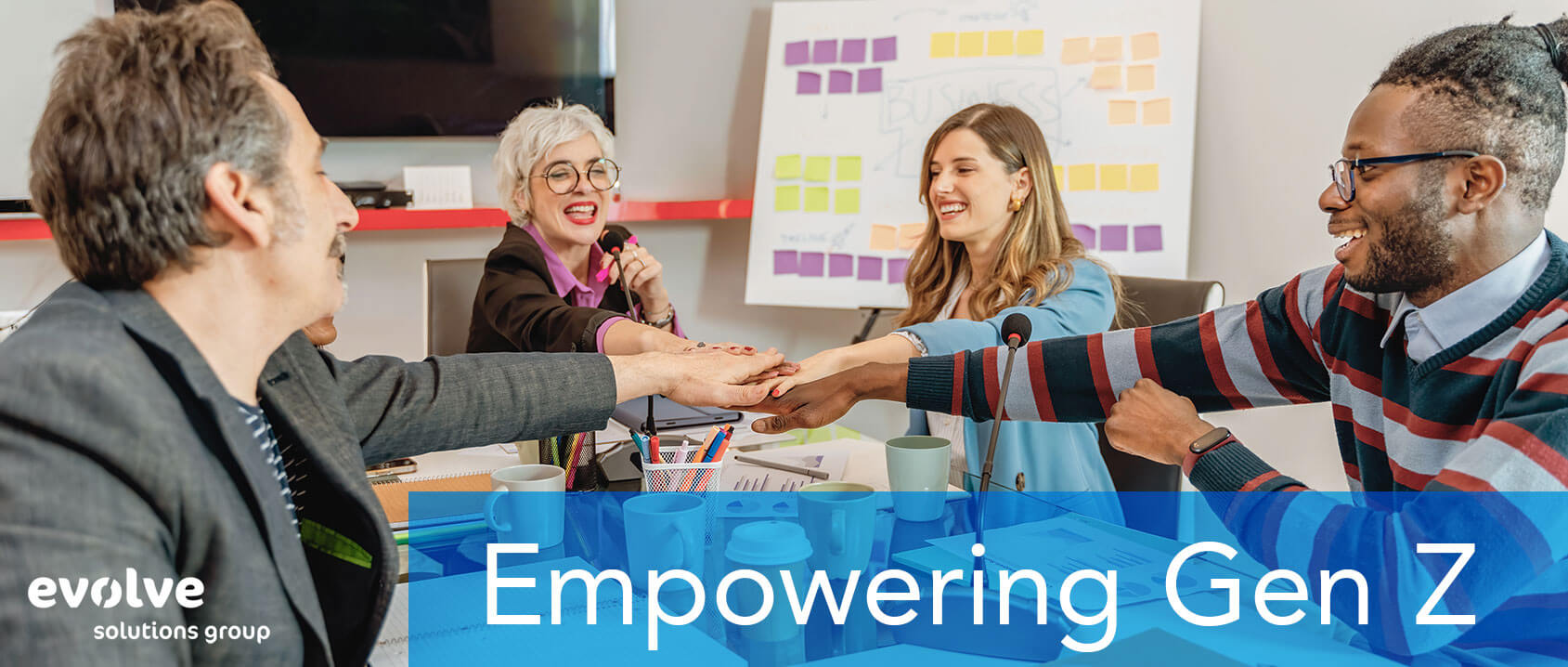At a recent team meeting I was asked to share my insights, as the only member of Gen Z on the team (shoutout to my fellow 1997–2012 crew!), surrounding the buzz about my generation’s impact in the workplace. While there are often truths hidden in trends, I know that each of our own unique experiences are more important than what year we were born. As I’m sure any other member of a generation in the workforce would say about their own.
What I do know is that each new generation tends to bring unique strengths and challenges to the workplace, and understanding those differences is key to building stronger, more inclusive teams. With every new generation entering the workforce encouraging businesses to develop and integrate them as a fundamental and valuable part of the whole (for more on a business’s role in training and mentorship, check out our “Investing in the Future” article).
It’s no secret that businesses are adapting to new challenges now as Gen Z enters the workforce, especially after the pandemic shifted work norms and increased remote work. But instead of seeing these perceived generational differences as issues, why not view them as opportunities for growth? Here’s a look at what’s trending regarding Gen Z in the workplace (with help from Deloitte, Forbes, and Adobe)—and how a little extra support can turn them into strengths that benefit everyone.
Key Challenges or Drivers for Success?
Motivation: It’s About Meaning, Not Just Money
Gen Z tends to look for purpose in work, not just promotions or raises. We want to know how our contributions make a real impact. Training programs can support this by focusing on purpose, showing how each role ties into the bigger picture and using real-life examples that connect daily tasks to meaningful outcomes. It’s all about showing us that our work has value beyond just meeting targets.
Communication Styles
We grew up with texting, emojis, and digital chat—quick and direct. Traditional workplace communication, like email, can sometimes feel overly formal, especially in remote settings where clarity is key. Companies can help by offering workshops on professional communication styles that cover email etiquette, tone, and best practices for digital tools like Slack, chat functions, and tools like Monday.com. Even setting up reverse mentoring, where older colleagues share traditional methods and Gen Z teaches digital tools, can bridge the communication gap.
Work-Life Balance
The blurred lines between work and home life hit hard for Gen Z. We value balance, not to avoid work, but to avoid burnout. Support can come in the form of time management and boundary-setting workshops, teaching us to prioritize without feeling overwhelmed. By encouraging tools like task managers and time trackers, companies can help us stay productive without sacrificing personal time.
Purpose Over Paychecks
For many of us, having a sense of purpose is a huge motivator. We’re driven by work that feels connected to something larger than ourselves. Organizations can foster this by infusing purpose into training and onboarding, highlighting how the company’s values align with social or environmental goals. Encouraging involvement in our immediate or professional community reinforces that our work has real-world impact.
Practical Skills Over Theory
Gen Z grads often need support with real-world professional skills, not just theory. Onboarding and ongoing professional development programs that cover the basics of professional communication, workplace tools, and time management can be game changers. Role-playing scenarios to practice skills in a low-pressure setting allow us to build confidence and adapt to workplace norms after likely spending some of our most pivotal years of our professional environment online.
Adaptability and Soft Skills
With the rise of hybrid work, adaptability is essential—but not always covered in school. Companies can support this by offering workshops on adaptability, creative problem-solving, and emotional intelligence, promoting continuous learning and providing resources that help build resilience and adjust to changes.
All in all, these steps make a big difference in helping Gen Z find our footing in the workplace and can be applied to professionals in every generation. Make sure to check out Tristia’s article “Investing in the Future: Training and Mentorship for Gen Z Success” to explore how businesses can take things further, creating an environment where Gen Z can thrive and make a meaningful impact.

